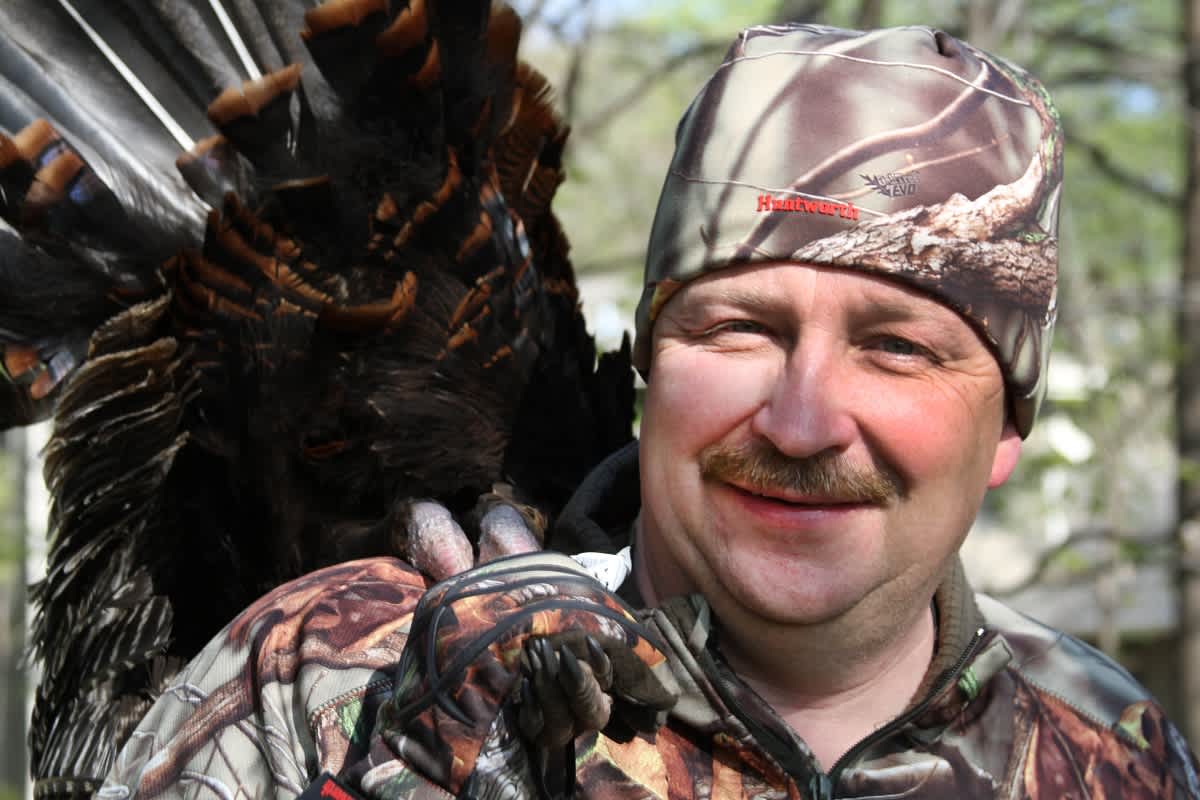Why You Should Consider Using an Outfitter for Turkey Hunting
Bill Miller 04.13.15

You know how you can masquerade as the World’s Greatest Turkey Caller, even if you can’t call a lick? All you need to do is learn the lay of the land where you’re hunting and the habits of the birds you’re after. Then just formulate a plan to make certain you’re where the birds want to be about a half hour before they get there.
You yelp twice, the tom gobbles back and comes marching into range. BAM! Get out the camera to take the grip and grin photos!
Sounds so easy, doesn’t it? But if it were, then a bird with a brain the size of a walnut wouldn’t defeat us so many more times than not.
Turkey calling is a skill you can practice away from the field. Of course, your uninitiated spouse may not permit practice in the house, and rehearsing anything but mouth calling on the commute to work leaves no hands for steering. Yet despite those hurdles, you can find a place to practice calling—somewhere.
However, you cannot remotely conduct boots-on-the-ground scouting and eyes-on-feathers observation of the flocks you’ll be hunting. Yes, digital aerial views from MyTopo, onXmaps, or others allow decent recon, and trail cameras can catch the habits of birds for you to wisely guess at patterns, but neither is a substitute for being there, walking the terrain, and seeing the birds day after day, season after season.
Firsthand knowledge and experience are the best reasons for considering a quality outfitter for your spring turkey hunting. If you can’t spare the time or travel to learn the terrain and get to know the birds, the next best thing is to hire someone who can.
The difference between an “outfitter” and a “guide” is important, especially in turkey hunting. By strict definition, a guide leads you in the woods and accompanies you on the hunt. There’s nothing wrong with that, especially for anyone still developing his or her own turkey hunting chops. I, for one, admit I’ll never be too old to learn new turkey hunting techniques and nuances. A good guide is a priceless resource as a teacher.
By definition, an outfitter “outfits” your hunt—meaning he or she provides all the things you need in support of your hunt such as a camp or other accommodations. This includes meals, possibly guiding (but not necessarily), and, most importantly, land access and information about the game you’re after. In effect, the outfitter should be passing along that scouting and observation experience that you couldn’t gain firsthand because of the restrictions on your time and resources.
The standard turkey hunting day finds the hunter set up on roosted birds at least half an hour before the first bird thinks about gobbling; an hour before is better. At night, it’s preferable to walk out of the woods in the dark to avoid disturbing birds you put to bed. That makes for a long day, and the rest of the non-turkey-hunting world doesn’t usually show the compassion to stay open to feed you or let you catch a shower! A well-run, outfitted turkey camp puts good food on the table when it fits the schedule and makes sure there’s a warm, dry place for you to crash for a few hours between fly up and fly down.
The important questions to ask a turkey hunting outfitter are the same as those you’d ask of a big game or waterfowl outfitter. Mostly, you’re looking to nail down the details of what’s provided and what’s not, so you’ll be confident you’ll get what you’re paying for. It’s best to get the agreement in writing or at least captured in an email exchange. Do your research. Book with confidence. Then prepare to have a good time.
Word of mouth from your friends is a good place to start your search for a turkey hunting outfitter, but don’t let your research end there. OutfittersRating.com is a great place to check out unbiased, unfiltered reports from previous clients of outfitters you’re considering.
You can also work through a reputable booking agency like Cabela’s Outdoor Adventures. They carefully filter to select the best of the best outfitters on which to place their endorsement. Working through a well-known agency can provide a great peace of mind.

